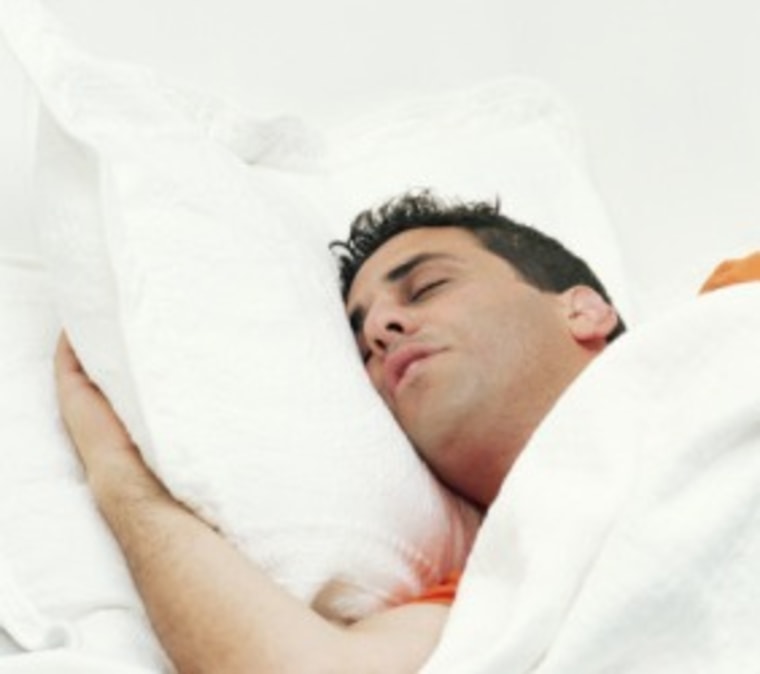Attention, busy middle-aged folks. You may be healthy and thin, but if you habitually sleep less than six hours a night, you still could be boosting your risk of a stroke.
That’s the surprising conclusion of a new study being presented Monday at SLEEP 2012, the annual meeting of the nation’s sleep experts.
Getting too little shut-eye appeared to more than quadruple the risk of stroke symptoms among healthy, normal-weight people aged 45 and older, according to a study of some 5,600 people followed for up to three years.
“The really important take-home message is this: Don’t blow it off. Sleep is just as important as diet and exercise,” said Megan Ruiter, the University of Alabama at Birmingham researcher who led the study.
Experts recommend that healthy adults get between seven and nine hours of sleep a night. But about one in three U.S. workers regularly gets less than seven hours of snooze time, according to a recent government health report.
Ruiter and her colleagues reviewed data from some 30,239 people participating in the REGARDS study – Reasons for Geographic and Racial Differences in Stroke – sponsored by the National Institutes of Health.
Of those, they teased out some 5,666 people who were healthy at the start of the study – no history of stroke, stroke symptoms, so-called “mini-stroke” or transient ischemic attack, or elevated risk for sleep apnea and other sleep-disordered breathing problems.
“We eliminated all the people who were high risk,” Ruiter said.
But when they looked more closely at the sleep habits of those people and adjusted for their weight, they found what Ruiter said were unexpected results.
In people who fell into normal weight categories -- a body mass index of 18.5 to nearly 25 -- those who reported sleeping less than six hours a night were at about 4.5 times greater risk of developing stroke symptoms than whose who slept seven and eight hours a night. Surprisingly, that increase wasn't apparent in overweight or obese people who slept less.
“Our thought is that habitually sleeping less than six hours is kind of like a precursor,” said Ruiter. “It might kind of lead to some of these stronger and more severe risk factors later on.”
That’s dismaying news to Mark Wolfe, 49, a busy teacher, husband and father of four from Corvallis, Ore., who has run the Boston Marathon eight times and routinely gets six hours of sleep or less, waking at 4:05 a.m. on weekdays in order to train.
“Because I’m leading a very active and healthy life, I don’t expect to drop dead from a stroke,” said Wolfe, who is tall and thin, with a BMI of about 21.
But there’s no question, adults function best with more sleep than six hours a night, experts say. Chronic sleep deprivation caused by getting too little most nights may boost the risk of stroke because it causes changes in the autonomic functions of the body, including blood pressure, heart rate, inflammation and glucose levels, said Dr. Phyllis C. Zee, associate director for Sleep & Circadian Biology at the Northwestern University School of Medicine.
“It not only affects the blood vessels to the heart and body, but also to the brain,” said Zee, who was not involved in the study presented at the meeting of the Associated Professional Sleep Societies.
It will take more research to determine whether short sleep actually results in more full-blown strokes for the REGARDS participants. But in the meantime, Ruiter said the study offers cautions for Wolfe and other middle-aged people who maintain their weight but scrimp on sleep.
“The important thing now is just to have physicians and people be more aware that the amount and quality of sleep might be important for how they feel and the quality of their health,” she said.
Related stories:
